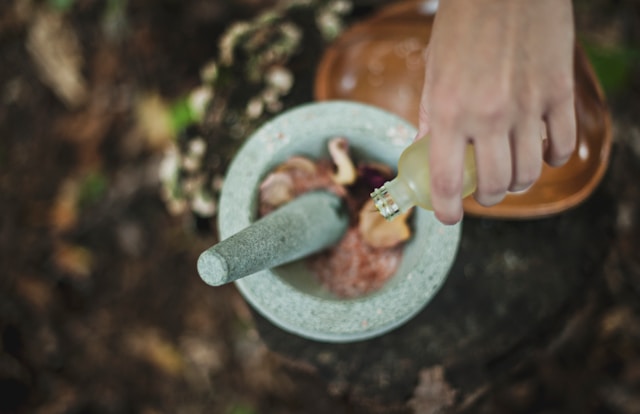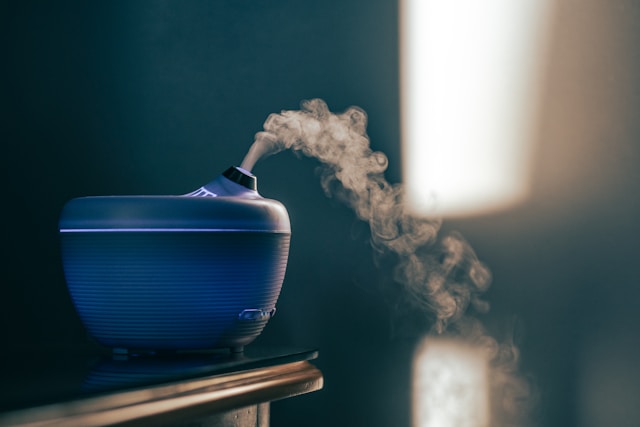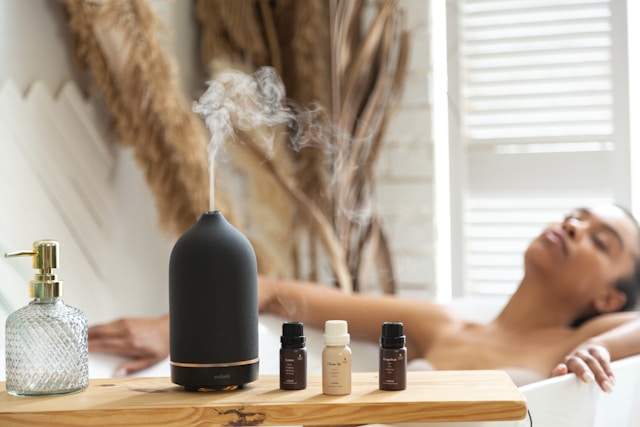How Does Aromatherapy Reduce Stress?
Understanding Aromatherapy and its effects on the Brain
Aromatherapy is a complementary therapy that utilizes essential oils to promote physical and emotional well-being. Essential oils are extracted from plants and contain aromatic compounds that can be inhaled or applied topically. Aromatherapy has gained popularity in recent years for its stress-reducing effects, with research showing that depending on the essential oil, it can help improve mood, promote relaxation, and reduce stress. By incorporating aromatherapy into one's daily routine, individuals can experience the potential benefits of this practice.
The effects of aromatherapy are thought to be mediated by the brain, with specific scents triggering different responses in the brain. For example, lavender oil is known for its calming and relaxing properties and has been shown to improve mood and lessen anxiety. Similarly, lemongrass oil has been found to have an anxiolytic effect, reducing anxiety in participants. Accumulating evidence has shown that essential oils can bypass the blood-brain barrier to target brain tissue through the nasal-brain pathway, providing a direct route for the therapeutic effects of aromatherapy. These findings suggest that aromatherapy may have a significant impact on the brain and its associated functions.
Inhalation aromatherapy has the potential to reduce stress and anxiety, with data emerging to further support this result across a wide modality of clinical settings. Aromatherapy can be used in various forms, including diffusers, inhalers, and sprays, making it a convenient and accessible option for individuals seeking to reduce stress. Tea tree oil is another essential oil that has been found to have stress-reducing effects, promoting good sleep and relieving stress and anxiety. Studies have shown that specific essential oils can reduce anxiety and offer simple, accessible, low-risk, and cost-effective interventions that improve the overall well-being of individuals. By incorporating aromatherapy into one's self-care routine, individuals can experience the potential benefits of this practice and reduce stress in their daily lives.
The Benefits of Aromatherapy for Stress Reduction

The use of essential oils in aromatherapy has been shown to lower levels of cortisol, a hormone linked to stress. This has been found to improve overall health, as high cortisol levels can lead to problems like weight gain, high blood pressure, and weakened immunity. Certain essential oils, particularly lavender and rosemary, boost antioxidant activity and decrease cortisol levels. Thus, aromatherapy can effectively counteract the harmful effects of stress on the body by lowering cortisol levels.
In addition to reducing cortisol levels, aromatherapy has been found to improve mood and promote relaxation. Specific essential oils such as lavender, bergamot, and chamomile have been shown to reduce anxiety and depression. The inhalation of these essential oils can help to create a calming effect and induce a sense of relaxation, making them an effective tool for stress reduction. Furthermore, aromatherapy has been found to improve performance in the workplace by reducing stress levels and increasing levels of attention and alertness.
Aromatherapy has also been found to promote better sleep. Essential oils such as lavender and chamomile have been shown to improve sleep quality by inducing relaxation and reducing anxiety. Aromatherapy yoga, a combination of yoga and aromatherapy, has also been found to reduce stress and improve sleep quality. By promoting better sleep, aromatherapy can contribute to improved physical and mental health, as sleep is essential for the body's recovery and repair processes. Overall, aromatherapy has a range of benefits for stress reduction, including the reduction of cortisol levels, improved mood and relaxation, and promotion of better sleep. By incorporating essential oils into daily life through aromatherapy practices, individuals can experience a range of physical and mental health benefits and improve their overall well-being.
Popular Essential Oils used in Aromatherapy for Stress Reduction

Lavender oil is one of the most popular essential oils used in aromatherapy for stress reduction. This oil has been shown to improve sleep quality and reduce anxiety when used in aromatherapy. A study published in the Journal of Alternative and Complementary Medicine found that lavender aromatherapy can improve mood and lessen anxiety. Additionally, taking a specific lavender oil supplement by mouth or using lavender oil aromatherapy or aromatherapy massage has been shown to help relieve anxiety. Overall, lavender essential oil has been proven to be effective in reducing stress and anxiety through both oral administration and inhalation.
Bergamot oil is another essential oil commonly used in aromatherapy to reduce stress and anxiety. This oil is known for its relaxing properties and works as a natural remedy for anxiety. A study published in the International Journal of Cardiology found that bergamot essential oil can reduce nervous tension and work as a stress reliever. The use of bergamot essential oil in aromatherapy can help alleviate psychological stress and improve depression.
Ylang ylang oil is a floral essential oil that has been used in aromatherapy for centuries to promote relaxation and reduce stress. A pilot study with 34 professionals from a nursing group found that the use of ylang ylang essential oil by cutaneous application can help reduce stress and promote relaxation. Another study showed that ylang ylang oil can cause a relief of depression and stress in aromatherapy. A blended oil formula containing ylang ylang oil has also been shown to decrease emotional arousal and offer evidence for its use in alternative medicine. Overall, ylang ylang essential oil can be an effective tool for reducing stress and promoting relaxation in aromatherapy. In conclusion, essential oils such as lavender, bergamot, and ylang ylang can be used in aromatherapy to reduce stress and anxiety. These oils have been shown to have relaxing properties and can improve mood and sleep quality. Incorporating aromatherapy into one's daily routine can be a natural and effective way to manage stress and promote overall well-being.
Benefits And Limitations

Benefits:
1. Stress Reduction: Aromatherapy has been shown to reduce stress levels, promoting relaxation and a sense of calm.
2. Improved Mood: Certain essential oils used in aromatherapy, such as lavender and bergamot, can help uplift mood and alleviate feelings of anxiety.
Limitations:
1. Allergic Reactions: Some individuals may be allergic to certain essential oils, leading to skin irritation or respiratory issues.
2. Limited Scientific Evidence: While many people find aromatherapy beneficial, the scientific evidence supporting its effectiveness in stress reduction is still limited.
Solutions:
1. Patch Test: To avoid allergic reactions, individuals can perform a patch test by applying a diluted essential oil to a small area of skin and monitoring for any adverse reactions before full use.
2. Consultation: Those with pre-existing health conditions should consult with a healthcare professional before using aromatherapy to ensure it is safe for them.
Our Aromatherapy product offers the potential for stress reduction and mood improvement, but users should be cautious about potential allergic reactions and consider consulting with healthcare professionals, especially if they have existing health concerns.







